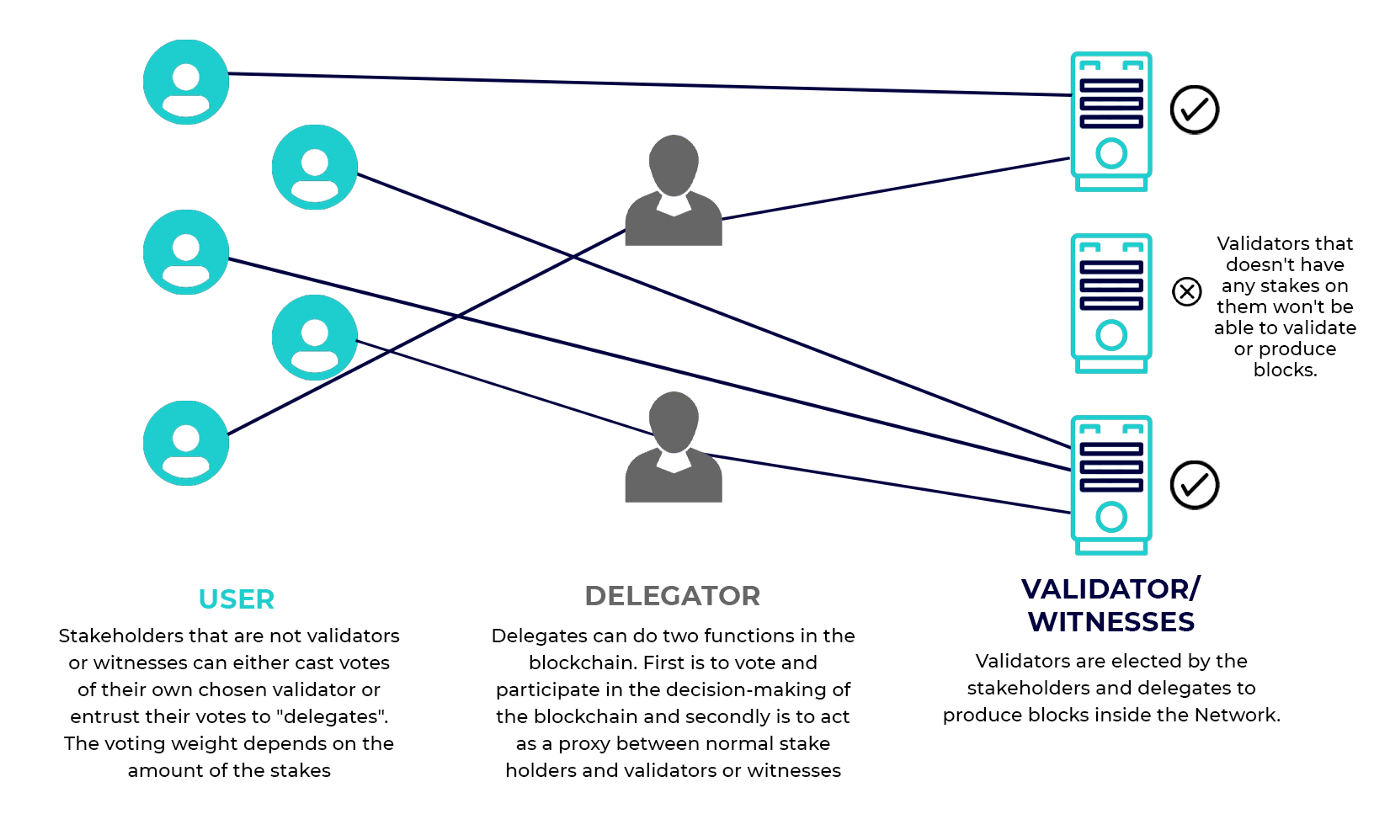Delegated Proof of Stake (DPoS) is a popular evolution of the Proof of Stake (PoS) concept, whereby network users vote and elect delegates to validate the next block. Delegates are also called witnesses or block producers.
With DPoS, you can vote for delegates by pooling your tokens into a staking pool and linking them to a particular delegate. You don't physically transfer your tokens to another wallet, but you use a staking service provider to place your tokens in a staking pool.
A limited number of delegates (most protocols choose between 20 and 100) are chosen for each new block, so the delegates for one block may not be the delegates for the next block.
Elected delegates receive the transaction fee for the validated block, and this reward is then shared with users who have pooled their tokens in the elected delegate pool. The larger your stake, the higher your share of the block reward. Rewards are shared based on each user's wager, so if your wager is 5% of the total wager balance, you will receive 5% of the block reward.
The first iteration of DPoS was developed in 2014 by former EOS CTO Dan Larimer. Larimer first implemented the consensus algorithm on the decentralized cryptocurrency exchange platform BitShares in 2015.
Today, a lot of blockchains, including Cardano and Avalanche, use DPoS. According to its proponents, DPoS is a more democratic way to choose who verifies the next block, allowing a more diverse group of people to participate in the process since it is based on reputation earned as a legal staker and not on overall wealth. In addition, because the number of validators is limited, DPoS allows the network to reach consensus more quickly.
